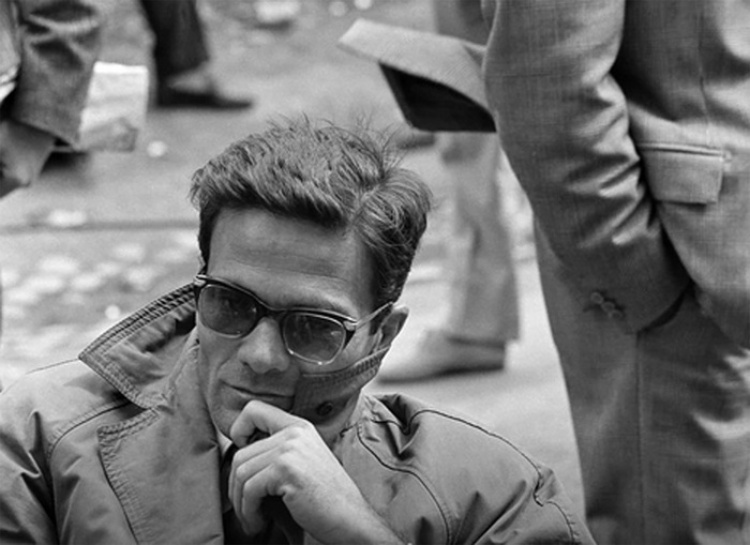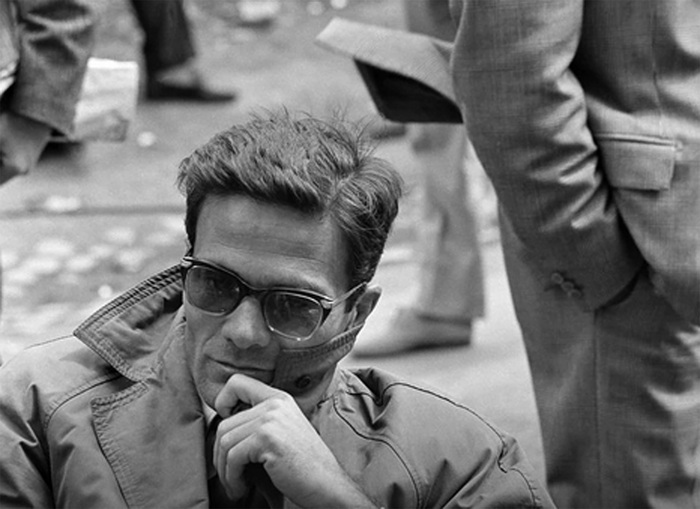They are asking for three DNA traces found at the scene of the crime in Ostia by police in 2010 to be re-examined.
The November 2, 1975 murder of the iconic poet, novelist, director and leftist political commentator remains a mystery to many of his admirers who suspect he was killed by political opponents.
Their lawyer, Stefano Maccioni, launched an online petition in January to reopen the file that has procured thousands of signatures.
A former attorney for Pasolini’s cousin is also involved with the petition.
In 2010 Maccioni managed to get the case reopened before it was again shelved.
The fresh initiative is linked to a December statement to the parliamentary anti-mafia commission from former Magliana Gang associate Maurizio Abbatino, who said the murder was linked to the theft of a movie Pasolini was working on.
Pasolini's murder may have been linked to the theft of the original film of some scenes of his movie Salo, which was still in production at the time, according to a report by the parliamentary anti-mafia commission released on December 16.
The writer-filmmaker may have gone to the beach at the Rome seaside district of Ostia, where he was killed, to try to recover the film, the report based on Abbatino's testimony said.
The commission said "major criminal gangs," such as the Banda della Magliana, may have been involved in the murder.
The report said it was unlikely that justice would ever be brought to Pasolini's killers but argued that it was still important to get to the truth for the history books.
The iconic leftist gay poet, novelist and filmmaker's many admirers have always suspected there was more to his murder than the actions of the young male prostitute who was convicted.
The young man, Pino Pelosi, claimed he had been repulsed by Pasolini's advances, only to retract his confession years later.
He died of cancer in a Rome hospital aged 58 in August 2017.
Pelosi confessed to murdering Pasolini the day after his death on November 2, 1975.
His retraction fuelled conspiracy theories that Pasolini had been assassinated by political opponents.
Pelosi was found guilty in 1976 of murder along with unknown others; the court ruled he was not alone.
An appeals court confirmed the murder conviction but not the role of any accomplices.
This sentence was confirmed by the supreme Court of Cassation in 1979.
In 1983 Pelosi was released on parole.
In 2015 a Rome judge shelved the latest investigation into Pasolini's murder, which had been thought to have put an end to the story before Abbatino's recent testimony.
It was shelved as a result of prosecutors being unable to put names to five DNA samples recently found on the clothes he was wearing on the night of his death.
The circumstances surrounding Pasolini's death remain a mystery for many.
He was killed by being run over several times with his own car after taking Pelosi to Ostia's Idroscalo (Lido).
Pelosi was caught by police at the wheel of the victim's blood-smeared car and immediately confessed to murdering Pasolini.
But in 2005 Pelosi retracted his confession, saying Pasolini was beaten to death by a group of thugs who wanted to "teach him a lesson".
Pelosi, now in his 50s and out of jail, said he had decided to "tell the truth" because his parents were no longer alive and therefore could not be the victims of retaliation by those who actually killed the director.
Magistrates subsequently reopened their files on the murder but shelved the case in November 2005 saying they had found no new evidence.
A fresh push by Pasolini fans resulted in the last probe, which found the previously unobtainable DNA.
The investigation was ordered by then justice minister Angelino Alfano in March 2010, at the behest of former left-wing Rome mayor and film buff Walter Veltroni.
Pasolini's friends, colleagues and admirers have never accepted the theory that Pelosi acted alone.
Many are adamant that he was murdered for the radically "dangerous" political views he expressed in his novels, books and newspaper editorials.
As part of a continuing drive to revive Pasolini's legacy, a recent film by Abel Ferrara with Willem Defoe in the lead role left question marks over the killing.
The previously rundown seaside locale south of Rome where he was killed has been turned into a "literary park".
Born in Bologna in 1922, Pasolini's first film was Accattone which came out in 1961.
With its violent depiction of the life of a male pimp in the slums of Rome, the film was an instant sensation.
His next film, Mamma Roma, also made waves with its portrayal of a middle-aged Roman sex worker played by Anna Magnani.
But another of his earlier films, the black-and-white 1964 Il Vangelo Second Matteo (The Gospel According to St. Matthew) was made with the Catholic Church's support and is hailed by many critics as the best cinematic adaptation of the life of Jesus.
Pasolini's later movies were sex-laden adaptations of classics such as Il Decameron (The Decameron, 1971), I Racconti di Canterbury (The Canterbury Tales, 1972) and Il Fiore delle Mille e una Notte (Arabian Nights, 1974).
The director also wrote critically acclaimed novels and poetry.
His first book Ragazzi di Vita, published in 1955, resulted in obscenity charges being brought against him and was denounced by the Vatican and the Italian Communist Party, of which Pasolini was a member.
Attempts to prosecute Pasolini for the book failed and it ended up as a finalist for the Strega Prize, Italy's leading literary award.
ANSA











